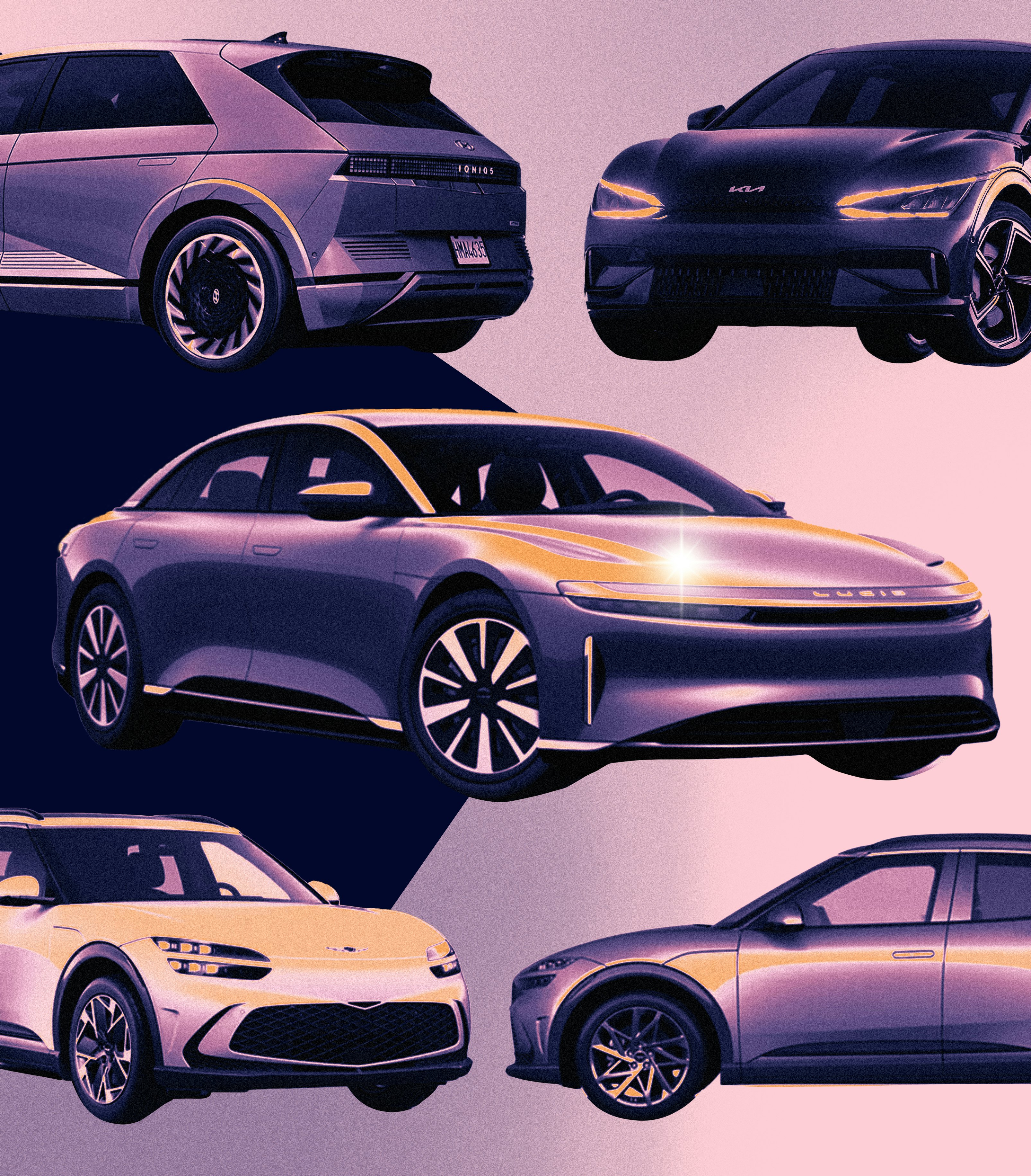
You’d be right to be a little wary of any list of best EVs. How many choices are there even? Well, a lot more than just a few years ago, and the U.S. will top a million EVs sold in 2023. This is a major milestone when you consider that, according to Bloomberg data, it took a whole decade for the U.S. to sell a million cars (2011-2021), then just two years to sell the next million, and now in 2023 alone, another million.
That means there’s enough variety for Inverse to get picky. That’s why you won’t find a $100,000 too-big-for-sanity Hummer EV on this list, or for that matter, Ford’s excellent, but too-expensive-for-most-contractors F-150 Lightning. Or Toyota’s BZ4X for its somewhat lackluster range.
We’ve made choices based around the idea that better tech is just that: more innovative and at least a little boundary-pushing, too. For instance, Polestar 2 is here because it’s a brand that keeps taking its hatchback platform to higher levels of goodness. You’ll also see Genesis, KIA, and Hyundai all making the cut because they’re leading with ultra-fast charging, as well as cool, beautiful, and weirdly futuristic designs.
While we can't wait for all of the exciting EVs coming in 2024 — ID.Buzz, anyone? — this year was a pretty momentous one for EV releases. In no specific order, here are our EV winners for 2023.
Mercedes-Benz EQE SUV ($80,000)

Mercedes-Benz's baller EQE SUV crossover comes crammed with incredible tech. We love the “transparent hood” feature that lets you see right through the car’s nose. Cameras create a surround perspective of the entire front end of the car and digitization eliminates the hood from view so you can see precisely where the wheels are on the pavement. That’s handy for off-roading and for everyday city parking challenges. Bonus: A 15-speaker, 710-watt Burmester sound system creates absolutely extraordinary stage reproduction.
Genesis GV60 ($53,000)
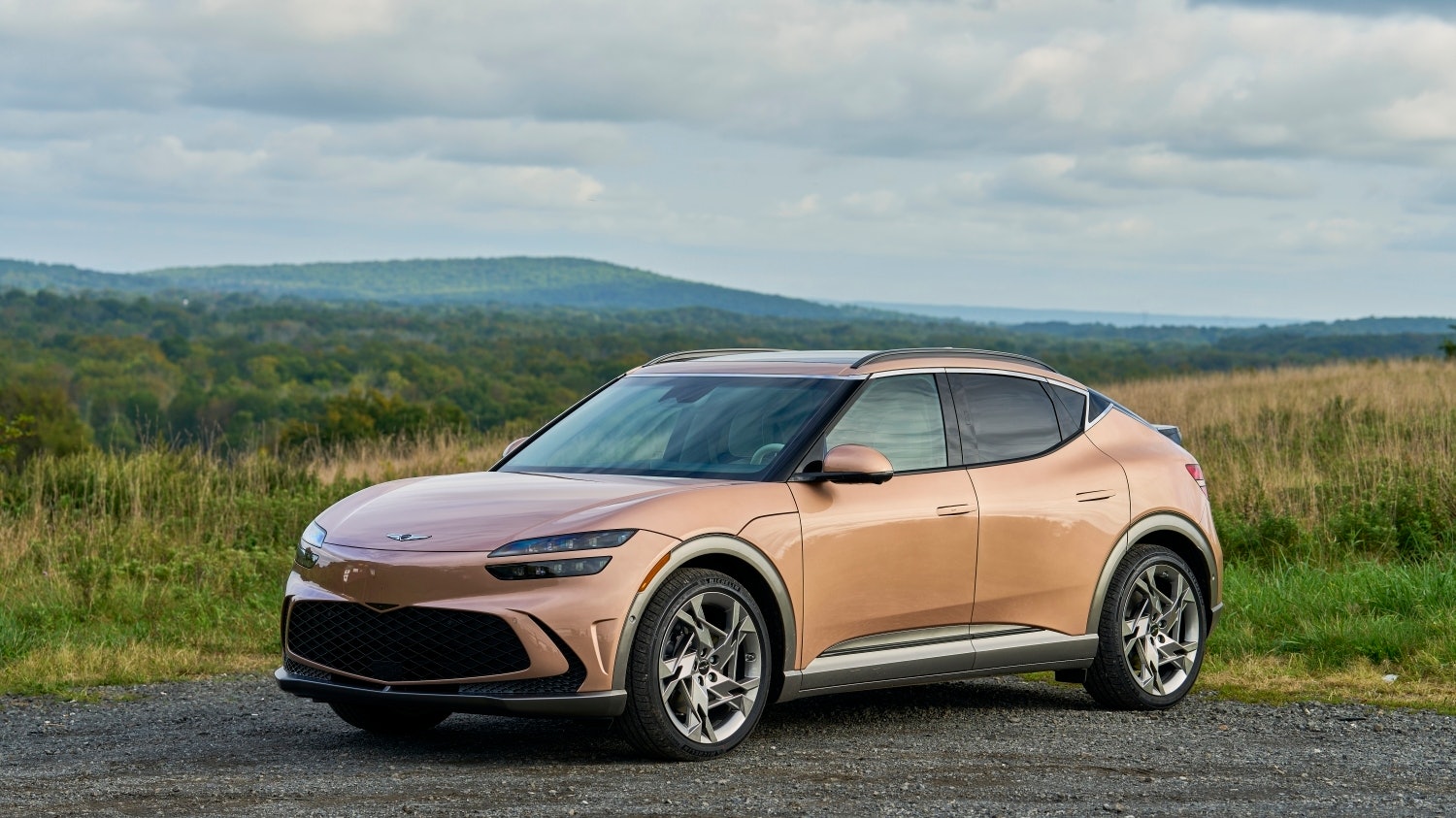
The upscale Genesis GV60 wins with a gorgeous interior and Bang & Olufsen stereo system, as well as standard heated and air-cooled front seats. The GV60 uses facial recognition to identify you as you approach the car (why bother with a key?) and a fingerprint scanner instead of push-button ignition. Then, there are some over-the-top touches, like a shift knob that looks straight out of Q’s laboratory of grenade launchers, and there’s a “boost” mode that lets you unleash full power (in the higher-spec model), reeling in 60 mph in under four seconds.
Hyundai Ioniq 5 ($41,000–$47,000)
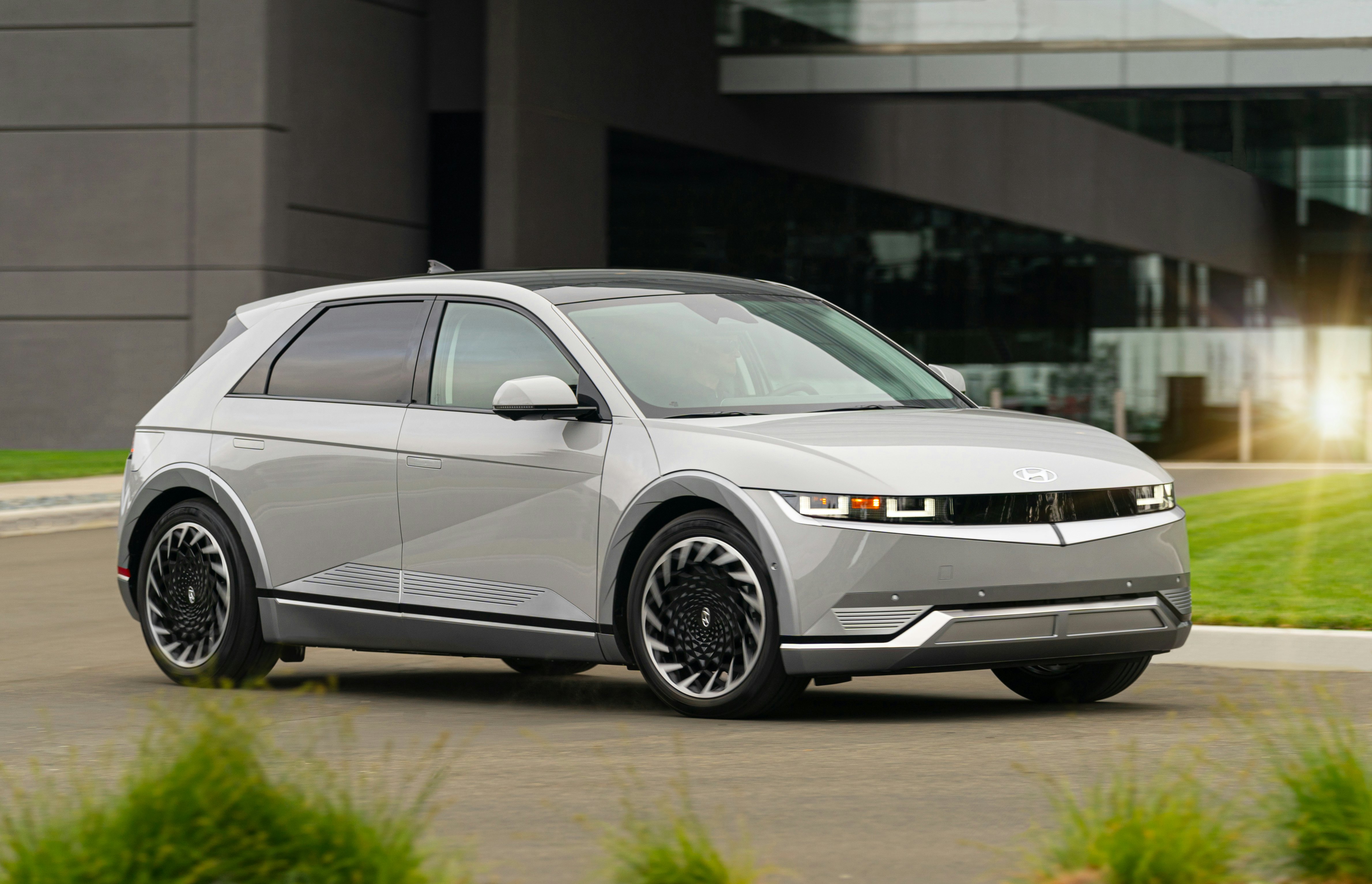
When it debuted the Hyundai Ioniq 5 was the family car that few people clocked as such. But take one for a spin and you'll realize the EV is massive inside, with full-sized-human space in both rows and mid-size-crossover cargo. The secret to all that space? Hyundai’s stretched the wheels to the very corners of the vehicle, yielding big-car space without actually making the Ioniq 5 drive like a titanic SUV.
KIA EV6 ($42,000–$61,000)
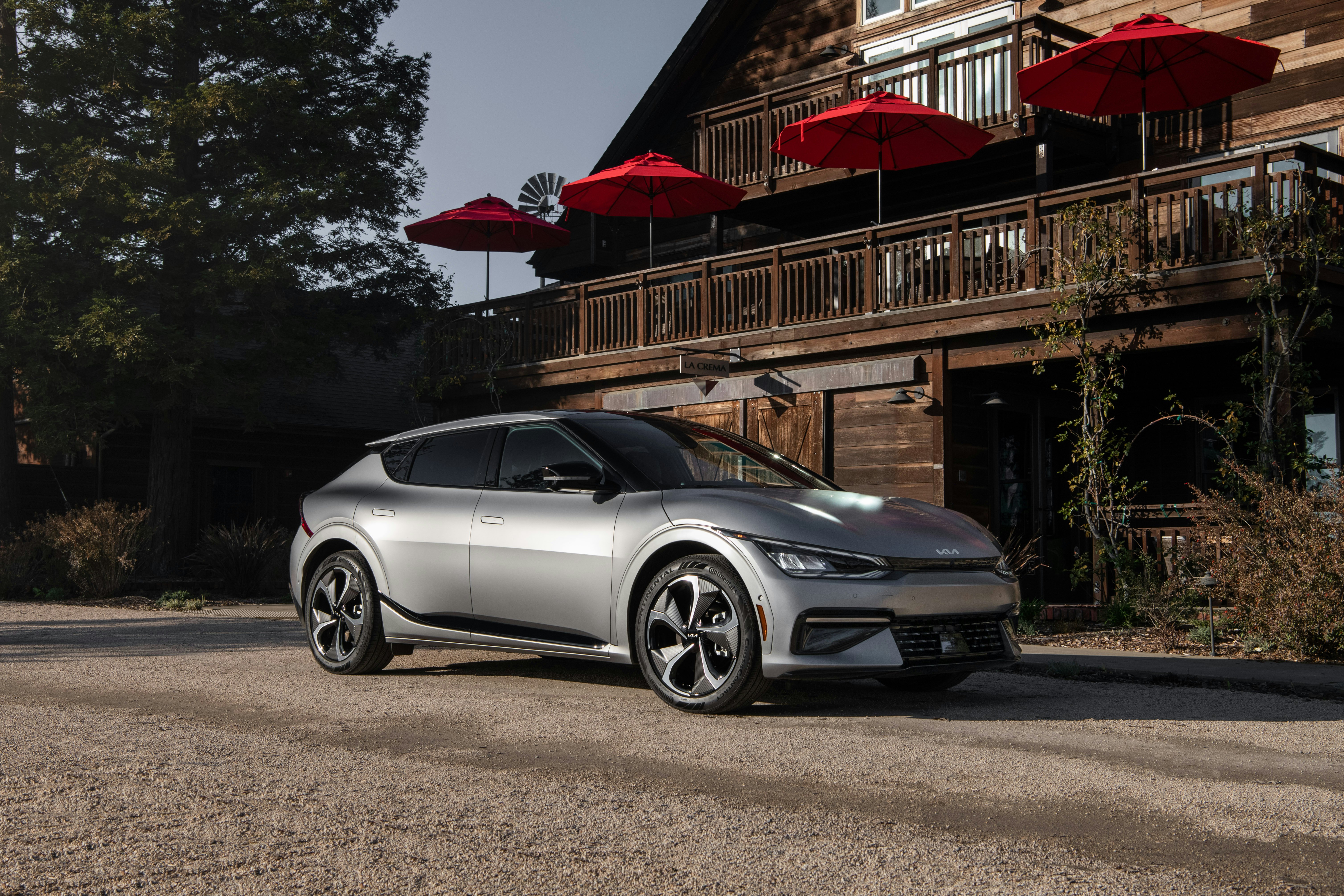
Kia's EV6 was probably the most head-turning debut this past year. Every time you pass one on the road, it’s hard not to just admire the silky lines. And that shapeliness makes the EV6 better at slipping through the wind, so you get a pretty great 310 miles per charge. The EV6 drives tauter and sportier than a bunch of similarly sized EV alternatives, too.
Rivian R1S ($78,000)
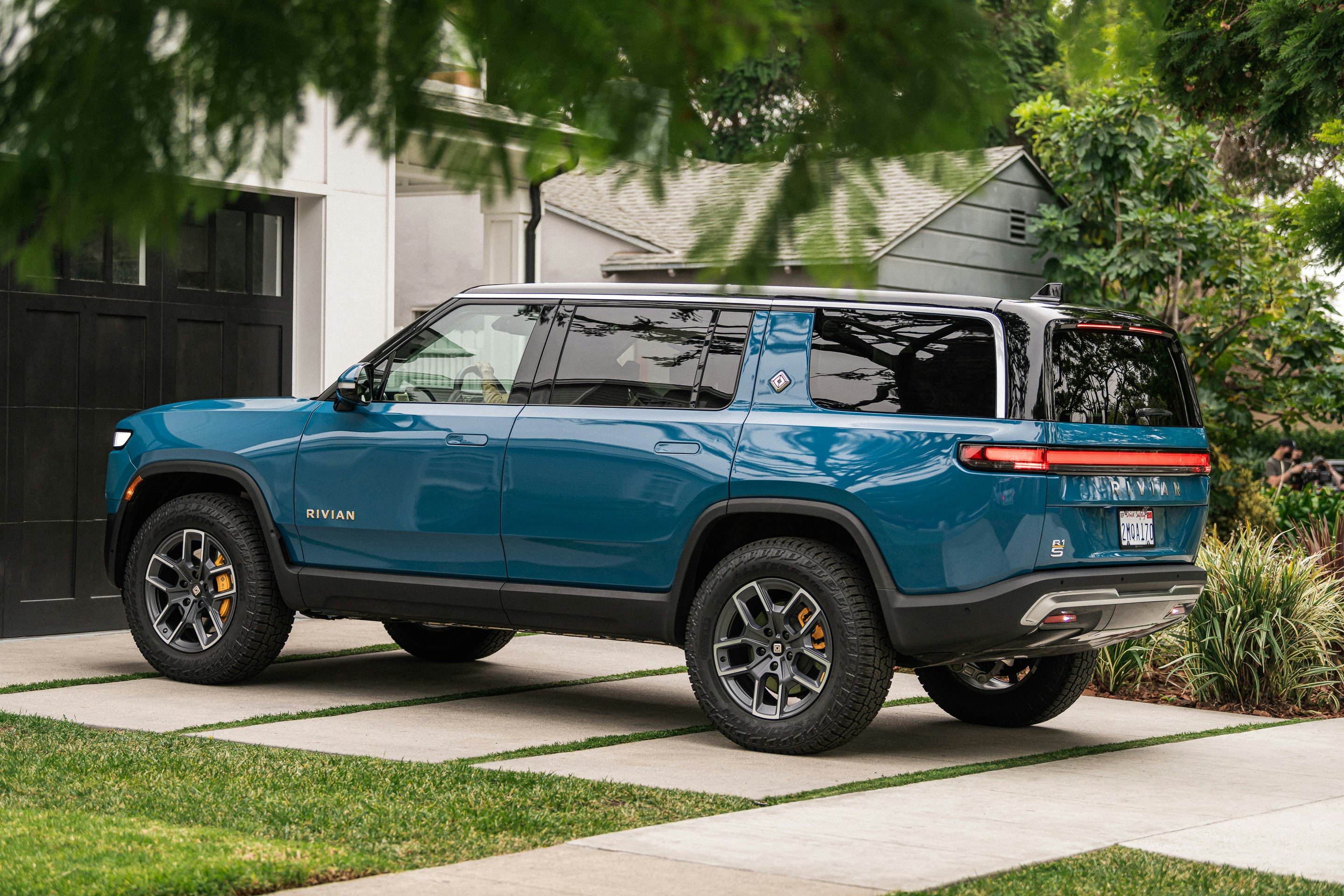
The startup EV brand not named Tesla isn’t afraid to tell you it doesn't have all the answers. This means they’re not afraid to partner up and get a better vehicle for it. For example, when looking for a better roof rack, it partnered with accessories brand Yakima and came away with a design that’s not only insanely aero, but one that attaches to the roof with a simple click on either side of the car. Rivian’s app is also brilliant, and less for what it does (such as pre-heating the cabin while it’s plugged into a charger) and more for the simplicity of design. Sure, being able to pop open the hatch from the app is nifty, as is lowering the windows, but the elegance of Rivian's design ethos — an Apple-like approach to focusing on the experience — is really why Rivian’s at the top of our list for innovative EV brands.
Lucid Air Pure ($74,900)
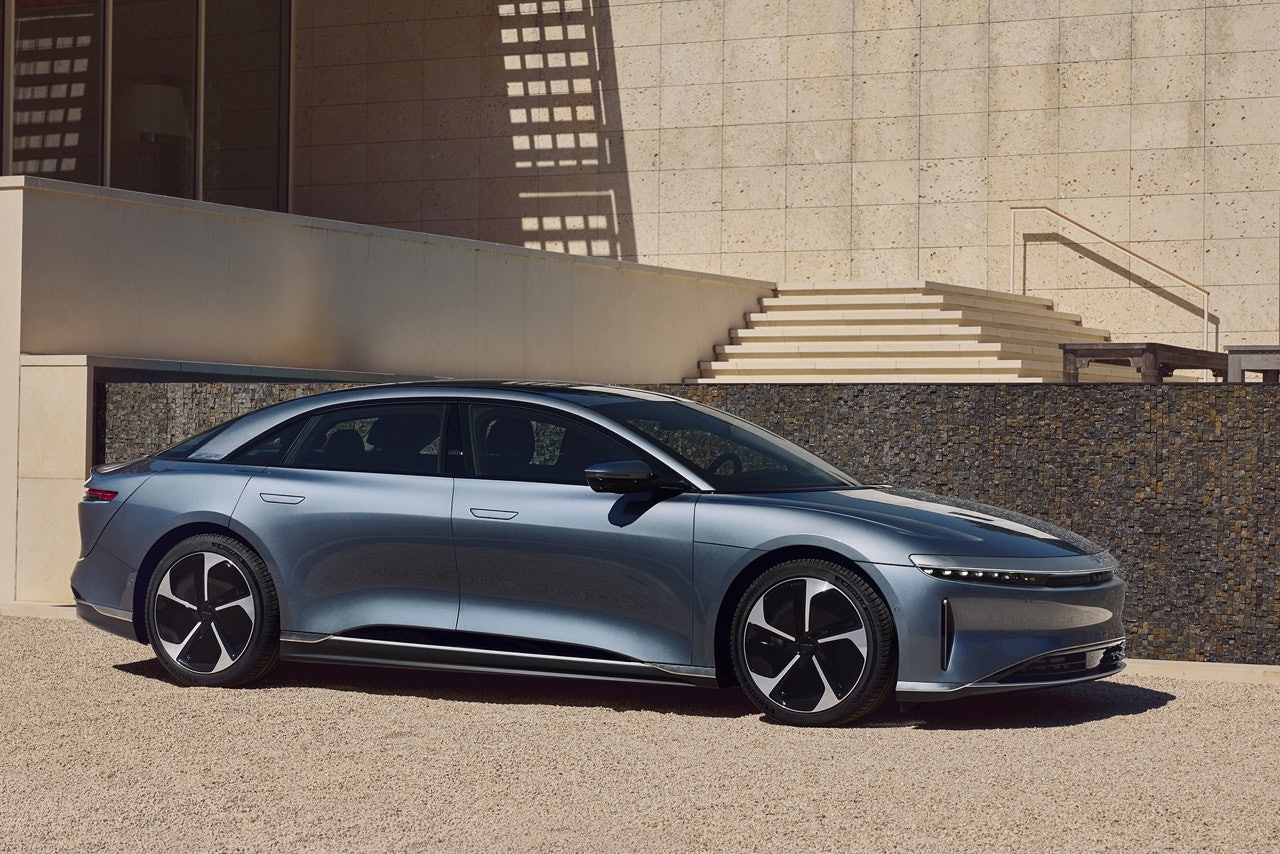
Lucid just launched its 2024 Gravity SUV, but while we wait to experience that rig, we already know the Air Pure is pretty tremendous. The EV is bonkers fast, but you should care more about reeling in 400 miles per charge, and for Type-A buyers, Lucid enables astonishingly fast recharging of up to 300 miles of range in just 21 minutes. Cabins bend a bit more tech than luxe, and that’s not just a facade. For instance, Lucid says that the audio system will learn your musical and entertainment preferences and surface those higher when you’re toggling for what to listen to next. And unlike the Tesla Model S, which doesn’t play nice with your phone, both Alexa and Apple CarPlay come standard on the Air.
BMW i4 (starting at $53,000)
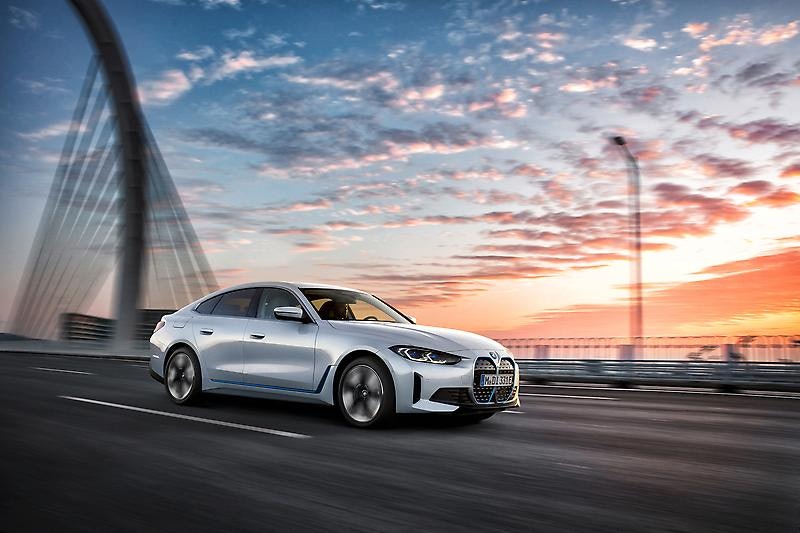
Get the BMW i4 xDrive40 and you’ll see over 300 miles of range — and handling that’s superior to BMW’s gas-powered M3 sports sedan king. The wonderful truth is that the i4 actually rides softer and more comfortably than the M3, so you’re getting a sports car that won’t jar your bones when you just want to cruise. Nab the Gran Coupe version (a.k.a. hatchback rather than trunk) and you’re getting a secretly “wagon-y” versatile sports sedan.
Nissan Ariya Venture+ ($47,000)
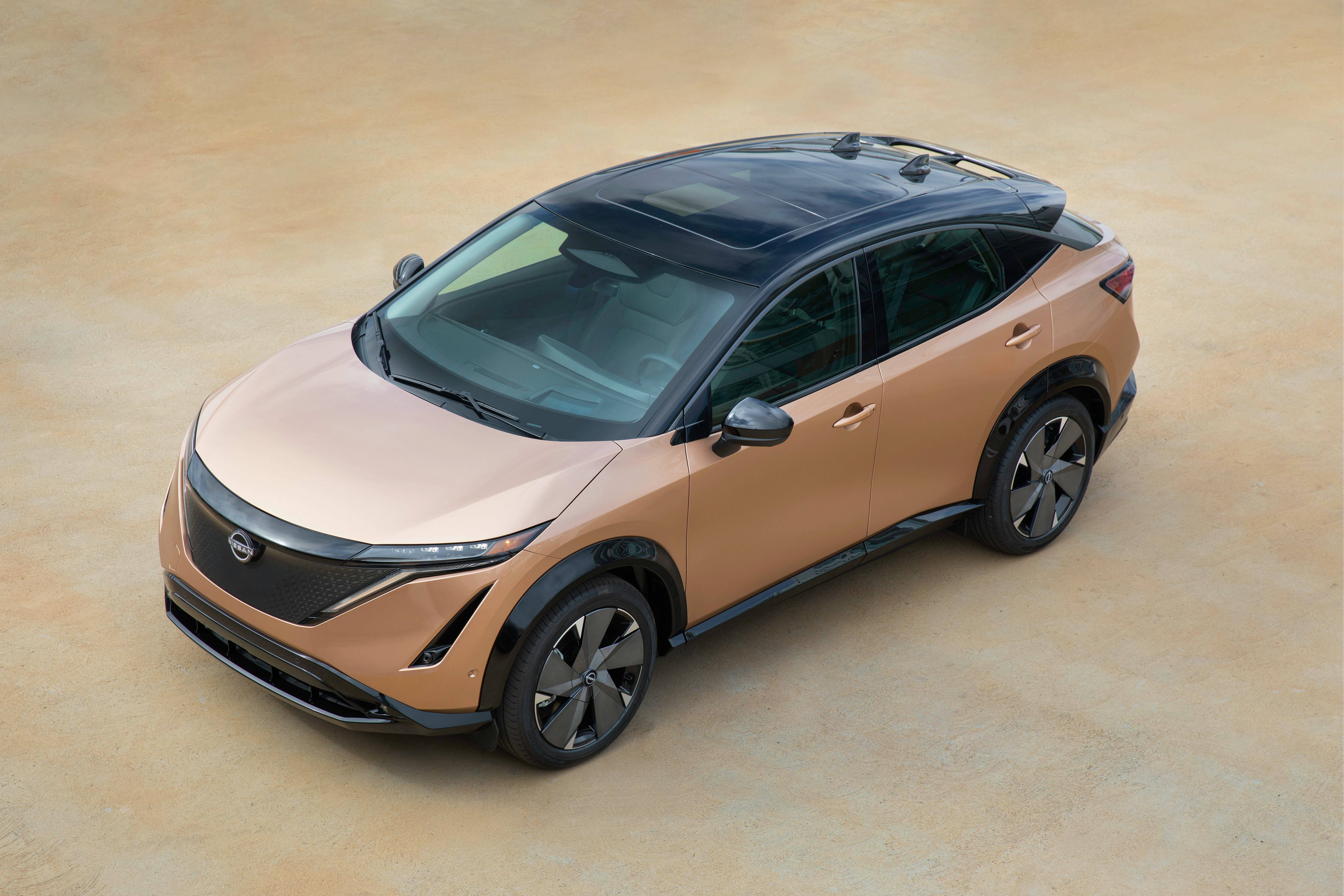
Like the Ioniq 5, the Nissan Ariya Venture+ is super roomy and features a tech-y exterior, but the cabin’s especially elegant. The wood dash is accented by thin metal trim and punctuated by super cool haptic buttons that don’t physically move when touched, but instead buzz with just a slight electric pulse of feedback. At the doors and footwells, Nissan’s created nifty backlit Kumiko-style screens (a pattern of Japanese woodwork) that glow with warm, LED softness. The Ariya Venture+'s semi-autonomous driving tech with lane-changing, lane-following, and adaptive cruise impresses as well.
Volkswagen ID.4 ($38,395)
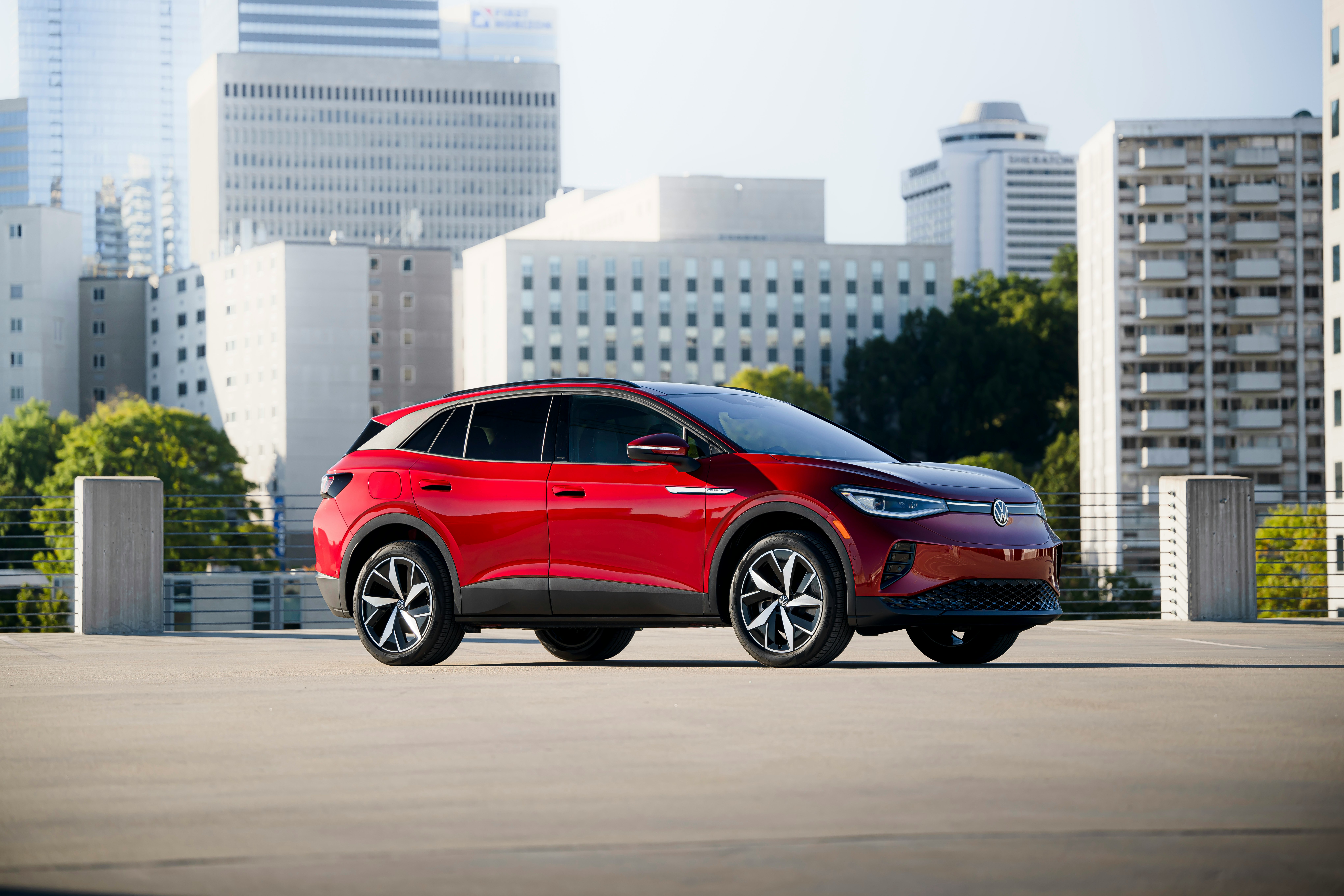
Because it qualifies for federal tax credits (and is the only foreign automaker that can make this claim) Volkswagen's ID.4 is a lot like the Chevy Bolt, since it delivers peerless value. Just consider that after the federal tax credit, the base model drops from the $38,995 sticker to $31,495. That’s for an especially roomy EV that’s roughly the size of a Toyota RAV4, but rides better and more solidly. There’ll be several more affordable EVs to drop in 2024, but none is predicted to be as cheap as the ID.4.
BMW iX Drive50 ($88,000)
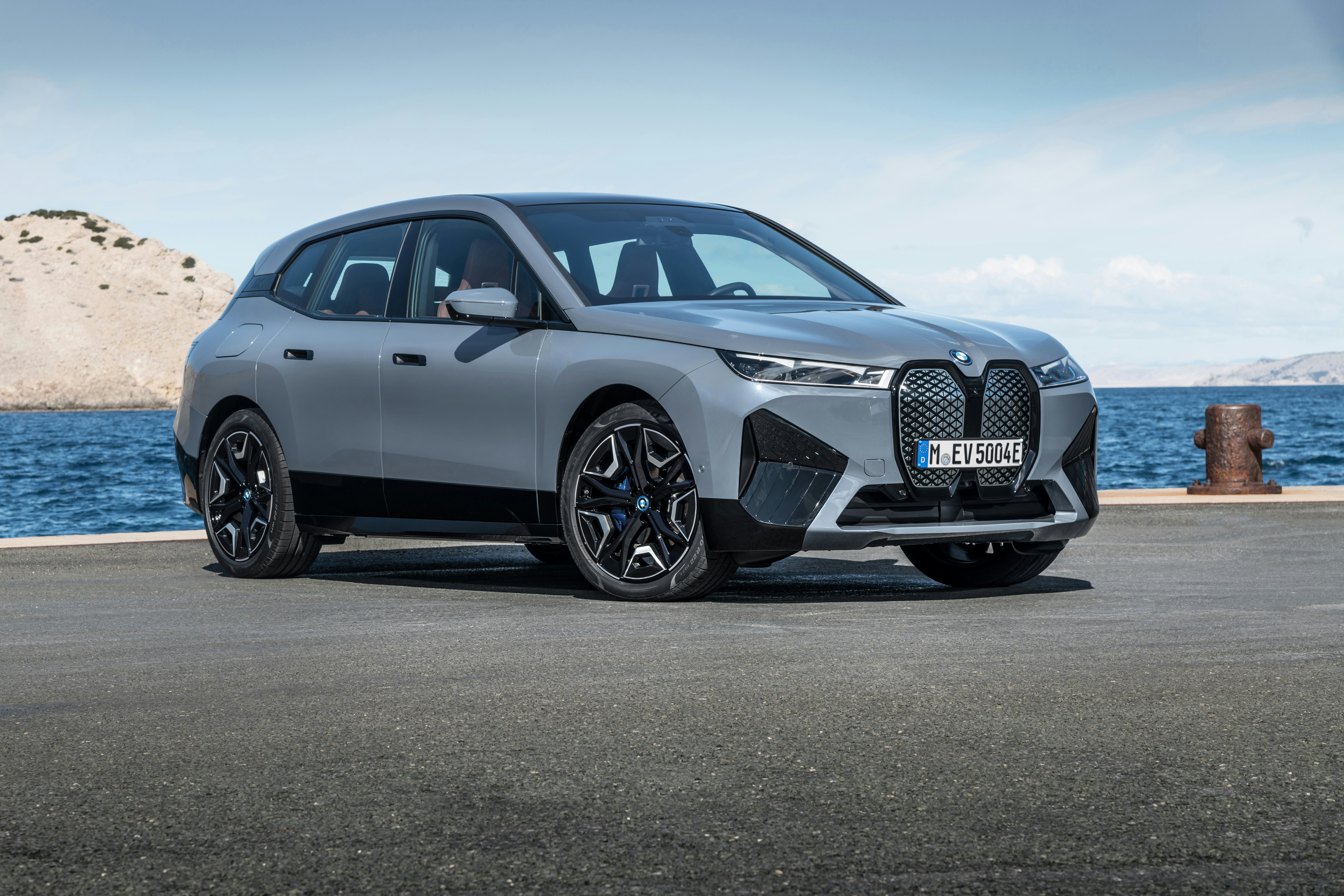
It’s hard not to fall for the tech inside of BMW’s iX Drive50. For example, a phone-based system can remember up to 10 of your favorite parking spaces and you just pull up to one, hop out, and let the car do the rest. There are voice commands for almost all functions, from turning down the heat to firing up those massaging seats. And like other brands, BMW lets owners use their phones as keys, too, because this is a long overdue innovation.
Polestar 2 ($51,000)
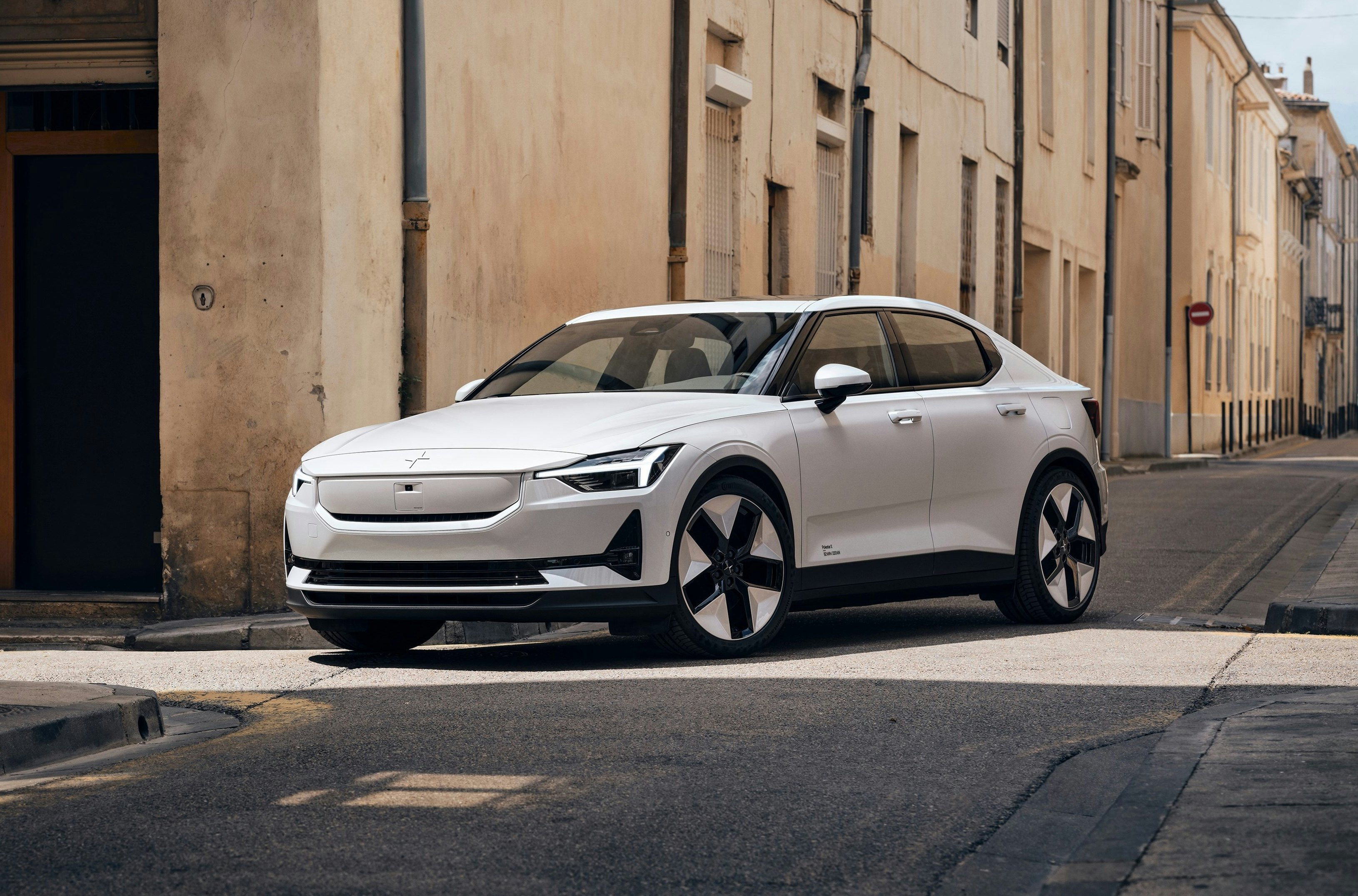
The Swedish startup keeps improving its Polestar 2, with range now cresting 300 miles. The company also changed course mid-stream, giving the single-motor model power to the rear axle rather than the front. How come? It handles way better. Also, Polestar’s upped its charging speeds, so you can re-boost from 10–80 percent battery in just 28 minutes. But what still makes us soft on Polestar is its gorgeous cabins that feature wood and vegan leather, and brushed metallic accents. All functions run on Google’s Android Automotive, a software suite tweaked specifically for Polestar that's a lot more streamlined and intuitive than most carmakers’ in-house operating systems.
Tesla Model 3 ($37,660)
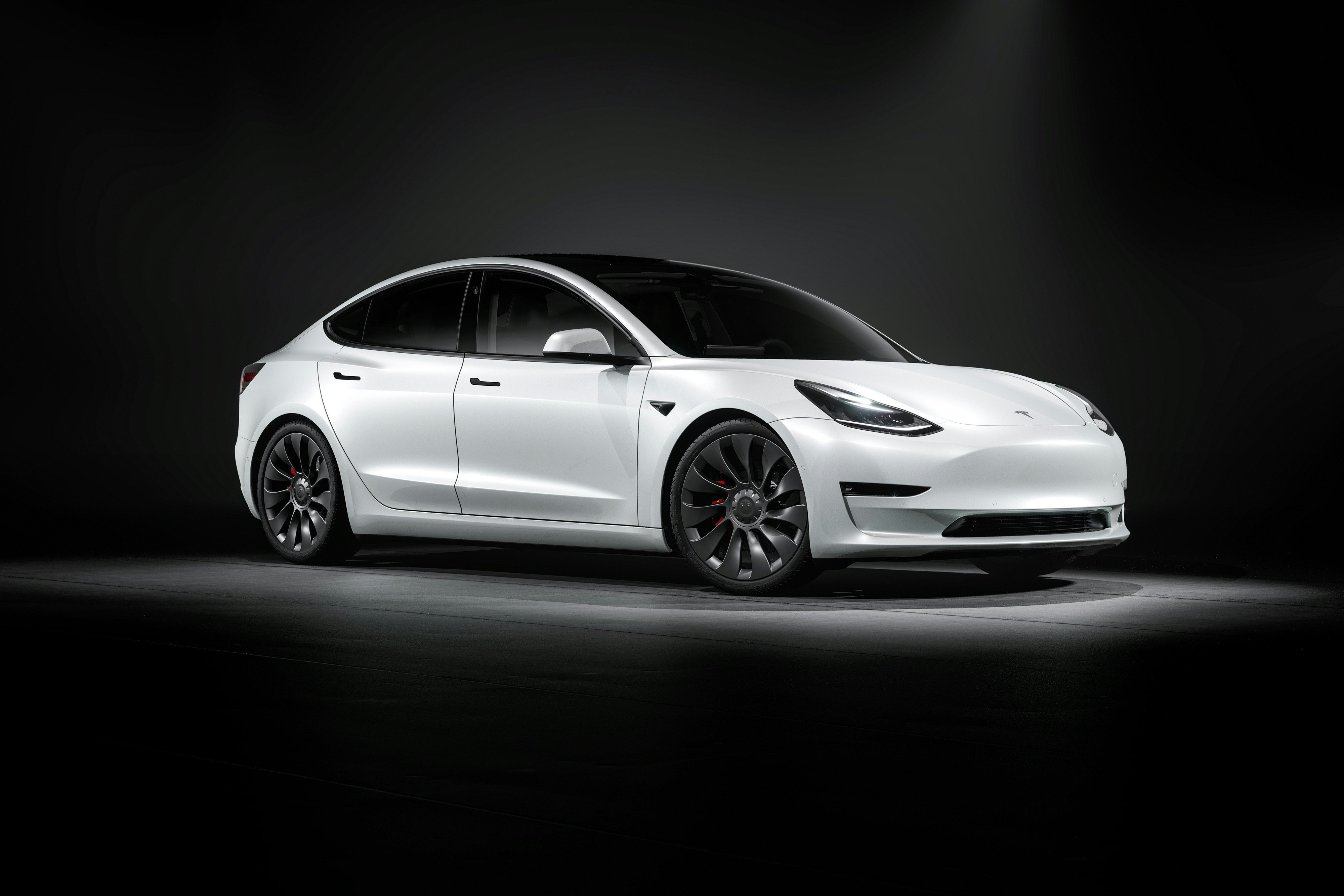
In Europe, Tesla recently released a revised Model 3 with some dandy additions we’d love to see here — and by the time you read this, maybe King Elon will have brought it to the U.S. Still, even the Model 3 for sale right this second is pretty sweet, largely because it qualifies for the $7,500 tax credit, so like the Volkswagen ID.4 and the Chevy Bolt, it's a very affordable car. Plus, there’s no discounting that access to Tesla’s Supercharger network makes re-amping your Model 3 easier than the hunt for sometimes broken and less reliable public plugs outside that network. Even the base model Rear-Wheel Drive has 272 miles of range, which blasts past even some EVs that cost thousands more.







